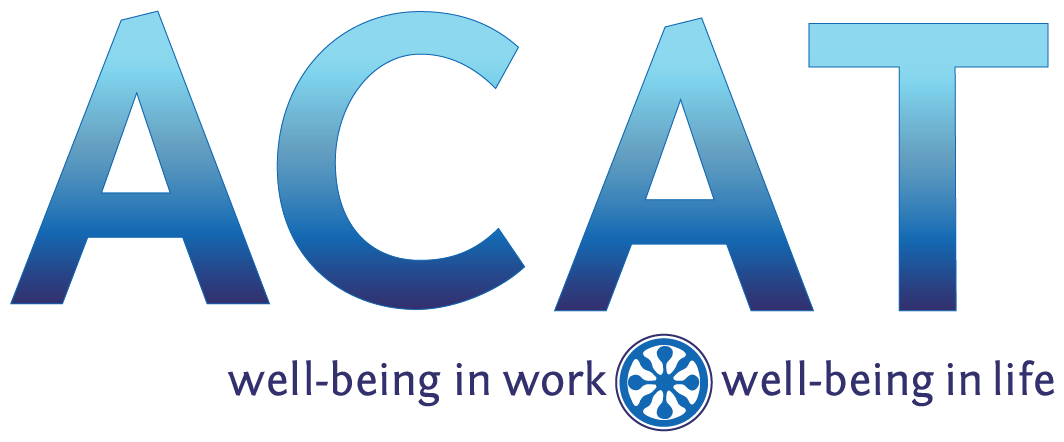by Brooke Lieb The first time I voted in a Presidential election was 1984. My memory is far from perfect, but I cannot recall a presidential race that began as early as the 2016 race, with one party's campaigning for the nomination starting in March, 2015; nor can I remember the type of rhetoric I am hearing as overt and extreme in US politics as it is during this election.
Frankly, it frightens me. And I am not alone. There are a plethora of articles about the heightened anxiety levels precipitated by this current election cycle. A search for "election anxiety" yields online articles from The Atlantic, US News, Newsweek, Time Magazine and The Washington Post, among other news outlets.
As an Alexander teacher, I spend my days teaching my students how to self-regulate so they can manage moments of spiking anxiety. To be an effective teacher, I use the very tools I am teaching, at work and in my life.
No matter which side of this debate you are on, it is likely that you feel strongly, believe in your own point of view and fear the outcome. It is also likely that your feelings are being heightened by the coverage you are exposed to.
What can you do to take care of yourself? Here are some resources, including simple tools I teach my students.
1. Remind yourself that you don't have to hold your breath.
When we experience fear or other strong emotions, we sometimes freeze. It may be a tight jaw, it may be subtle or not so subtle clenching in shoulder, chest or abdomen. Frequently, tension reduces the mobility of our torso, and breath requires movement in the ribs.
2. Stand with your back touching a wall or door.
Use the contact with your back against the surface to bring you into the present environment. See and name what is around you, in as much detail as you can. (Example from my studio: Area rug with floral patterns, in beige, burgundy, sage green; massage table with a green cotton sheet that has stripes; dark brown wood computer desk with a cordless phone/answering machine and an iMac; fireplace mantle surrounded by teal tiles).
3. Research what actions you can take to assure your vote counts and that your elected officials represent your values.
Search your state and federal nominees to find out where they stand on the issues (search "[your state] 2016 candidate platforms". In addition to finding out where they stand, you can find out how to support the campaign of those who represent your views.
4. Learn how to bring awareness to, change the subject, and minimize participation in conversations that upset you.
It is possible to effectively bring awareness and shift the conversation without shaming anyone. This article from the New York Times is entitled "Lessons in the Delicate Art of Confronting Offensive Speech"
5. If someone has decided who they are voting for, there is no need for discussion. If speaking to an undecided voter, learn how to listen to what matters to that person.
Here is an article "5 Ways To Have Great Conversations"
6. Limit your exposure to media
Once you have done your research and know which candidates represent your values, and how you can take action to improve their chances in the election, take a media vacation. This has not been easy for me, but I have designated media black out days, when I do not read or watch anything about the election.
7. Have an Alexander Lesson
Alexander Technique teaches mindfulness in daily living. Akin to meditation, Alexander Technique teaches conscious inhibition, or how to calm your "flight or fight" response.
This article in Wikipedia explains the neural mechanisms of mindfulness techniques.
This blog was originally posted at brookelieb.com
[author] [author_image timthumb='on']http://www.acatnyc.org/main/wp-content/uploads/2014/01/Brooke1web.jpg[/author_image] [author_info]N. BROOKE LIEB, Director of Teacher Certification since 2008, received her certification from ACAT in 1989, joined the faculty in 1992. Brooke has presented to 100s of people at numerous conferences, has taught at C. W. Post College, St. Rose College, Kutztown University, Pace University, The Actors Institute, The National Theatre Conservatory at the Denver Center for the Performing Arts, Dennison University, and Wagner College; and has made presentations for the Hospital for Special Surgery, the Scoliosis Foundation, and the Arthritis Foundation; Mercy College and Touro College, Departments of Physical Therapy; and Northern Westchester Hospital. Brooke maintains a teaching practice in NYC, specializing in working with people dealing with pain, back injuries and scoliosis; and performing artists. www.brookelieb.com[/author_info] [/author]

